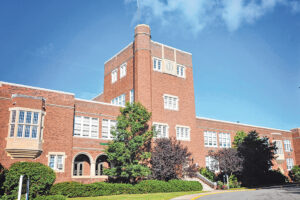
LATEST NEWS

Girls Giving Back: American Legion Junior Auxiliary
Supporting vets and their families When people think of the American Legion, they might conjure images of people marching in parades or consider their numerous legislative achievements on behalf of

Supervisor DeSena Meets With Manhasset High School Social Studies Honor Society

Manhasset Students Traveling To International Science And Engineering Fair

Manhasset Art Teacher Returns To Restore School Murals

Chinese American Association Of North Hempstead Holds Gala

Suozzi Meets With Local Mayors

Families Celebrate Easter In Many Ways At Church Of Our Saviour Lutheran Manhasset

Manhasset Public Schools Launches Community Poll For New Team Name
As part of its next step in identifying a new team name as mandated by Part 123 of the New York State Education Department Commissioner’s

Camera Club Keeps On Clicking
Companionable, creative outlet for over 50 years The Manhasset Great Neck Camera Club has been around since 1951, and has been meeting at the Manhasset

Tower Foundation Continues Its Mission
Manhasset alumni raise money for school initiatives The Tower Foundation of Manhasset, Inc. is a non-profit organization established in 1991 by members of the Manhasset

Manhasset Library Trustee Meet The Candidates Night April 10
On Wednesday, April 10th, The League of Women Voters is moderating a Meet the Candidates Night for the two nominees who are running for Library

Endometriosis Study Enters Phase 2
Science is inching closer to understanding complex condition March is Endometriosis Awareness Month – a condition that affects 1 in 10 women. With little known

School Budget Begins
Thin margins require a delicate dance The Manhasset school budget development process has been underway for several months. A number of factors are putting significant
TRENDING
Ukrainian Rocker Talks
Fundraising For Friends,
25 Years Of Touring
Gogol Bordello to play free benefit
in Tompkins Square Park
By Cory Olsen – April 15, 2024
THIS WEEK'S
SPECIAL SECTIONS

UPCOMING EVENTS
- Check back here for future events



